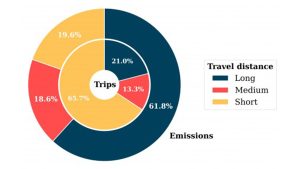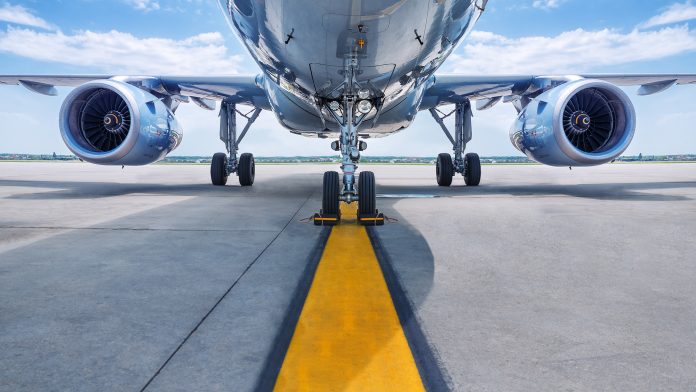New research has uncovered that carbon emissions associated with professional conferences make up a sizable fraction of the air travel emissions produced by researchers in academia.
Andrea Gokus, a McDonnell Center postdoctoral fellow in the Department of Physics in Arts & Sciences at Washington University in St. Louis, is advocating for a reduction of air travel emissions.
In a paper published in PNAS Nexus, Gokus and collaborators estimated the CO2-equivalent emissions from conference travel to all 362 open meetings in astronomy in 2019.
The total is an estimated 42,500 tonnes or about 1 tonne per participant per meeting.
Overall, aviation accounts for around 2.5% of global carbon emissions, and its contribution to climate change is even higher.
How can academics reduce their air travel emissions?
“Networking and discussing new scientific developments at meetings is important for advancing the field, but adjustments can be made to reduce their hefty carbon cost,” Gokus said.
Virtual meetings can almost completely eliminate air travel emissions. However, virtual offerings are often not regarded as efficient networking opportunities.
According to Gokus, meeting organisers should consider preferentially locating conferences as close as possible to the majority of as many participants, avoiding scenarios in which most are flying intercontinental.
In addition to pure virtual meetings, Gokus and her co-authors propose hybrid formats and meetings held at a small number of physical hubs, which can then be virtually linked.
This approach has the potential to reduce long-haul travel, which contributes to the majority of global carbon emissions.

If long-haul travel is unavoidable, the study authors suggest maximising the time spent at the travel destination.
Reductions could make academic industries more inclusive
These choices not only make astronomy meetings greener but also make astronomy more inclusive as a discipline.
Travelling to meetings is often more challenging for those from less-wealthy institutes, those farther from North American and European hubs, people who have to manage complex visa bureaucracies, researchers with disabilities, and those with caretaking responsibilities.
Gokus concluded: “By making use of technology to connect virtually, we can foster a more inclusive collaborative approach, which can help us advance our understanding of the Universe further.”









